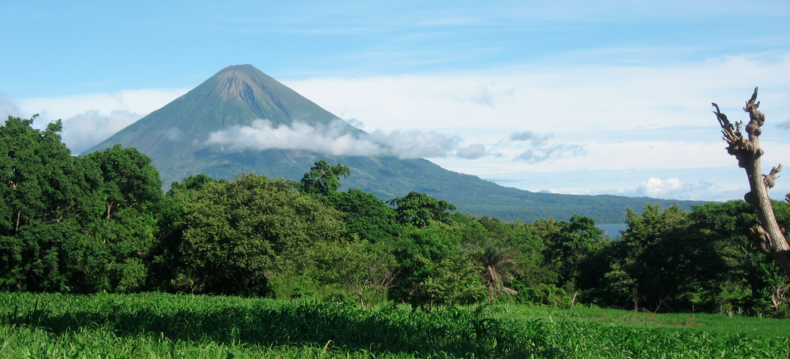Nutrition
Overview
Malnutrition is major concern in Nicaragua. According to the PCI global review, 46% of Nicaraguan children suffer from chronic malnutrition.[1] Adults suffer from chronic health problems directly related to malnourishment. Malnutrition is especially dangerous in relation to maternal health, as there are significant consequences for both the mother and the child. Consequences of maternal malnutrition for mothers include: increased risk of maternal complications and death, increased risk of infection, anemia, lethargy and weakness, and lower productivity.[2] Consequences for the growing child include: increased risk of fetal, neonatal, and infant death, intrauterine growth retardation, low birth weight, prematurity, birth defects, cretinism, brain damage, and increased risk of infection.[3]
Source: MyPyramid
Maternal Nutrition
Getting the proper micronutrients and vitamins during pregnancy and lactation is crucial for proper fetal development and maternal health and safety. During pregnancy, all women need to eat more food, and a greater variety of food in order to get all of the supplements they need. Without increased nutrient intake, the pregnant women’s body is weakened as the body uses up its own reserves. Insufficient weight gain for a pregnant woman often leads to low birth weight, and a higher risk of infant death.[4] Proper nutrient intake during lactation is also important so that women can provide the nutrients for their growing baby without taking away from their own body’s nutrient stores.
Source: CORE group 2004
Some important micronutrients include:
Vitamin A– vision, immune system
eggs, dark fruits &veggies
Iron– prevention of anemia
red meats, poultry, fish, beans, leafy veggies
Folic Acid—prevention of Neural Tube Disorders (NTDs)
dark leafy veggies, legumes, nuts
Iodine– thyroid function
sea food, iodized salt
Zinc– immune system
organ meats, red meat, poultry, fish
“Energy,” Protein, Calcium
The Nicaraguan Diet
Food is intrinsically linked to culture and customs. All around the world, people have different events, habits, and rituals around food. The intertwining of environment, history, and culture make food customs important and unique in different communities. Because food is so linked to culture, changing diets that do not promote good health is very difficult. People resist the change because they are accustomed to certain tastes and certain ways of doing things. The Nicaraguan diet is composed of rice, beans, coffee. Other common food includes corn tortillas, fried plantains, cabbage, cheese; occasionally meat such as chicken or fish. This diet does not include enough variety of important micronutrients and supplements, putting Nicaraguans at risk and harming the health and nutrition of the nation. It leads to malnutrition in children, which can result in stunting of child growth.
Source: 2014 Global Nutrition Report: Nicaragua
Poor Nicaraguan diet can also result in a variety of non-communicable diseases in adults, such as hypertension, elevated glucose levels, and elevated cholesterol levels.[1]
Source: 2014 Global Nutrition Report: Nicaragua
Sources:
[1] http://globalnutritionreport.org/files/2014/11/gnr14_cp_nicaragua.pdf
[1] https://www.pciglobal.org/nicaragua/
[2] http://www.coregroup.org/storage/documents/Workingpapers/MaternalNutritionDietaryGuide_AED.pdf
[3] http://www.coregroup.org/storage/documents/Workingpapers/MaternalNutritionDietaryGuide_AED.pdf
[4] http://www.coregroup.org/storage/documents/Workingpapers/MaternalNutritionDietaryGuide_AED.pdf




